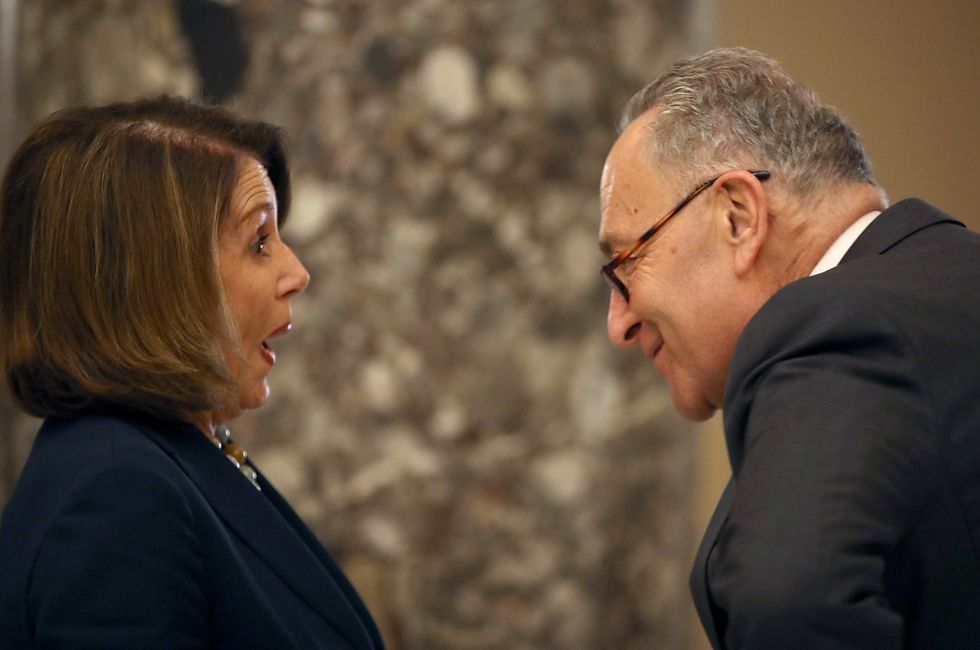
Senate Minority Leader Charles Schumer (right) (D-N.Y.) talks with House Minority Leader Nancy Pelosi (D-Calif.) after a news conference at the U.S. Capitol on March 13 in Washington, D.C. President Donald Trump is reportedly considering forming a working coalition with congressional Democrats, led by Pelosi and Schumer. (Justin Sullivan/Getty Images)






